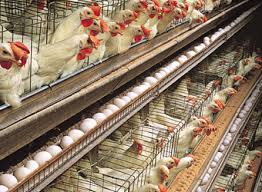Saudi Arabia Solar Industry association, Riyadh witnessed roundtable discussion on Sustainable Agriculture: A Solar Solution, in partnership with PwC and Dar Solar.
The talk was regarding the efforts for reducing fuel costs and increasing energy security for Saudi Arabia’s agricultural sector.
The poultry industry will benefit from Solar-diesel hybrid solutions, the idea of hybridizing diesel generators integrated with solar PV systems, as debated by participants.
Hybrid solar-diesel systems provide power to poultry houses, which are not connected to the national electric grid. It is already successfully adapted in UK, which help to minimize the heavy diesel consumption of poultry industry, said, Mark Webster, agribusiness and food practice lead, PricewaterhouseCoopers (PwC).
Saudi poultry producers are facing higher energy costs due to the total reliance on fossil fuels.
In future, domestic producers are expected to double national poultry production putting more pressure on diesel fuel demand. A hybrid solar-diesel system will be a solution that may ensure a secure and affordable source of power, Webster noted.
At present, domestic poultry production accounts for 40-45 percent of the Saudi market, which is expected to increase to 60-65 percent in the next 5-10 years, due to huge investment plans in additional production capacities.
Dar Solar, a Saudi-owned solar engineering company is evaluating the feasibility of a solar-hybrid solution for a hatchery utilizing 900,000 liters of diesel annually.
This solar hybrid solution will include the combination of existing generators and PV panels with optional battery storage, said, Abdulmohsen Al Shoaibi, managing partner, DarSolar.
Moreover, operating diesel generators as the prime source of electricity is uneconomic as in Saudi Arabia diesel is sold at 10-15 percent subsidy rates. Again, diesel supply in Saudi Arabia is drying up, hatcheries and poultry firms may have to rely on alternative energy sources for their off grid locations.
On the other hand, Juan Carrasco, president, GPTech, presented their photovoltaic-diesel hybrid solutions, highlighting the Energy Management System.
The combination of diesel and solar would provide larger stability and autonomy to such facilities, both for isolated solutions and those connected to the grid, commented, Carrasco.
The roundtable was attended by a number of local and foreign institutions, including environmental technical consultancy Altermia Asesores Técnicos, Al Watania Poultry, National Centre of Palm and Dates, and IYA Investment.
editor@greentechlead.com

